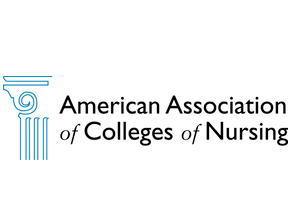
AACN
American Association of Colleges of Nursing serves as the national voice for academic nursing.
Follow this authorWritten By Michael O'Neill
As a profession, as a school, we are committed to our work with vulnerable populations. That extends to the issue of diversity – in our student body, in our workforce, in our faculty. Whether we’re talking about minorities in general or Latinos in particular, there is a persistent gap in nursing that must be addressed by diversifying the workforce – at all levels.
While the gap between majority and minority persists among registered nurses, there’s even less representation at the graduate and Ph.D. level. With the increasing numbers in the Hispanic population, we have a real challenge but also a real opportunity to bring more Latinos and Latinas into the nursing profession.
It begins with making students and their parents more aware of the career paths in nursing from an early age, and at least by high school so that they can start taking the necessary science preparatory courses and maintaining a high enough GPA – so that they are ready to compete at the college level.
Many minority students enter nursing through the community college route, which is more accessible and affordable. Today though, the norm for nursing is to have your bachelor’s degree, so you need to have the eventual goal in mind to get into a baccalaureate program and complete your education. To that end, many states in the country are working to make it easier for students to matriculate from an associate degree program into a baccalaureate program.
Expanding Community Outreach
Situated in West Philadelphia, we do a lot of community outreach that not only includes the large African American population here – but also our growing Latino and other immigrant communities. Our expanding list of outreach activities to the Latino community include clinical partnerships – Hispanic but also non-Hispanic bilingual – and volunteer opportunities for students. These outreach efforts are important on many levels: they enable us to better serve the community at large; build relationships and train students from within the community; and provide role models to look up to in the hopes that more people will aspire to the nursing profession.
Many of our faculty are actively engaged in Latino communities both here and abroad. In part because of their efforts, a significant percentage of our student body is Latino, and they have come together to form the Latino Nursing Network.
This group was instrumental in two events that we held where we invited nurses and student nurses from Latino communities not only here in Pennsylvania, but in New York, New Jersey and Florida. At these events, attendees learned about the latest innovations in nursing, and had the chance to develop their leadership skills and learn about different opportunities available to them that they might not have known about.
Student-led and student-driven through the Latino Nursing Network, events like these provide another way for us to integrate into the community. And our faculty is helping us support our communities, too. For example, one faculty member secured funding from the Office of Minority to develop a training program to teach Latino nurses about the Affordable Care Act (ACA). They were trained in particular so that they could in turn go out into the community and help other Latinos enroll in the healthcare exchanges
In addition to being dean, I’m also a researcher, and I extend our outreach activities into that role as well. In fact, I’m currently finishing up a study in Puerto Rico to help parents better communicate to their children about sex. But it started as a result of our community outreach efforts here. I initiated the research when I was a faculty member at Penn School of Nursing, working with adolescents and engaging with the community to develop, implement and test the program. Community involvement is essential to everything that we do.
No Limits or Obstacles Too Big
Though I didn’t know any Latino nurses growing up, I was fortunate to have parents who inspired me toward higher education and a career in nursing. Though it may seem like a worthy but somewhat limited career path, that’s not true at all. Once in the nursing world there are endless opportunities beyond direct patient care if you have the desire to move into leadership or management positions.
My position itself makes that case, and it also makes an important statement about how much Penn values diversity – because you don’t yet see many Latinos holding the position of dean in the academic world. To faculty members and students, it sends a powerful message that there are no limits to what you can aspire to.
If you’re truly interested in the nursing profession, find the best school and fit for you, and don’t be deterred by perceptions about the cost of an Ivy League education. Oftentimes, if you are accepted and committed to finding a way, the funds will follow. For example, the university here offers need-blind tuition assistance. If you are accepted into Penn School of Nursing, the university is committed to helping you acquire the funds you need to pursue your education. And, we are the only Ivy League schoolthat offers a baccalaureate, masters and Ph.D. education. You could come in for your Bachelors and end up leaving with your doctorate.
Post your Comment
Please login or sign up to comment
Comments